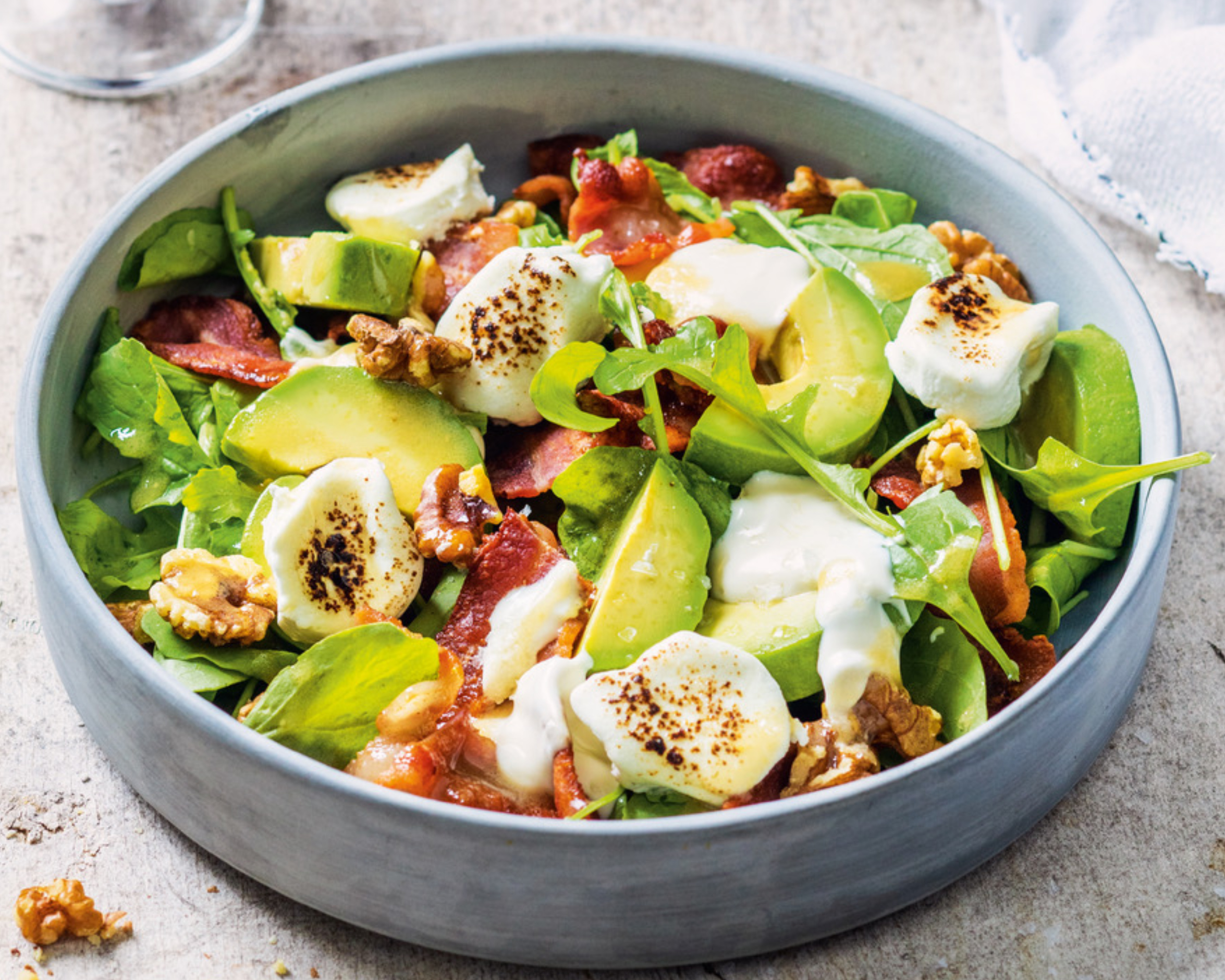Can you really eat your way to better mental health? Science – and celebrated salad queen, Chantal Lascaris – say “YES!”, with a growing number of studies adding proof to the proverbial pudding. Or is that papaya?
While it’s well known that eating lots of fruits and vegetables can be good for your physical health, recent studies show that an increase in the consumption of good and healthy foods can result in an improvement in your psychological well-being and your long-term life satisfaction, as well.
Using her home kitchen (and her own family) as the testing ground, Chantal’s latest release, The Ultimate Salad Book, transitions the salad from a simple side dish to more-ish main. It serves up more than 100 simple, nutritious and delicious recipes for any event, and includes a yummy selection of make-it-yourself salad dressing recipes that will help you keep your healthy eating interesting from one day to the next.
Asked about her choice to focus on food, not only in the form of recipes, but as a means to living well by eating better, Chantal says: “When we come to understand that finding wellbeing along our food journey lies in the experience of food, we begin to choose our meals and prepare them with a new outcome in mind. By changing the experience of food preparation, eating becomes wellbeing. And when we eat better, we feel better.”
Chantal has compiled six helpful (and admittedly, delicious) suggestions to keep in mind when it comes to eating your way to improved mental and physical wellbeing:
- Eat your vegetables – raw. From the staples lettuce and spinach, to chopped carrots and cucumber, raw vegetables are packed with fibre and plant compounds that offer an array of benefits for your health. Sceptical? You don’t just need to take the salad queen’s words for it – a study of 422 young adults found that eating raw vegetables was associated with good mental health and mood.
- Go nuts! While you may not have previously thought to include nuts and seeds in your salads, options like pistachios, walnuts, pumpkin seeds, almonds, and peanuts, all make for highly nutritious additions! A word of caution, however, is to look for the raw or dry-roasted varieties to ensure you aren’t crunching on something that’s loaded with added salt, sugar, and other preservatives.
- A Protein Fix. Eating salads doesn’t mean that you need to cut chicken, fish or meat from your diet. In fact, several studies have shown a direct link between meat consumption and lower levels of depression and anxiety. More than half of the recipes in Chantal’s book have some sort of meat in them, making the variety of recipes as diverse and interesting as they are delicious and nutritious!
- Right as grain. Adding whole grains, such as cooked brown rice, quinoa, and barley, to your salads brings a new texture to the dish, with a variety of new flavours as well. Available at most grocery stores, they’re a good source of fibre and protein, helping you to feel full and satisfied for longer.
- A fruitful outcome. Even though most people tend to think of salads as a combination of vegetables, fresh fruit can be added as a different and delicious topping – with added health benefits! The nutrients found in both fruit and vegetables can have a positive impact on our brain chemistry, which in turn positively influences our mood, memory, and cognitive abilities. A diet that’s high in these things also tends to reduce the risk of being diagnosed with an anxiety disorder – making regular salads as good FOR you, as they are to eat!
- Herbs and more herbs. You’re likely no stranger to using herbs to add flavour or fragrance to a dish. And doing so with your salads brings its own benefits. Fresh herbs like basil, mint, rosemary, parsley, sage and coriander, bring unique flavours to any salad, as well as some interesting health effects. Research has shown, for example, that a compound in rosemary and sage may have anticancer properties, while cilantro may help to fight inflammation.
Adding healthy toppings and ingredients to your salads not only boosts the flavours, but also the nutrition you get with each mouthful. And putting together one of Chantal’s scrumptious salads will likely leave you feeling fuller and more satisfied – both mentally and otherwise!
Words by Kerry Simpson
Photography: Courtesy images





